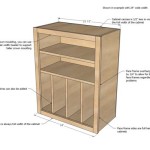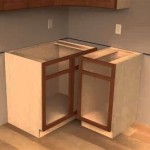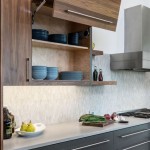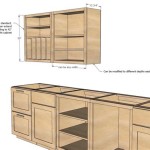Mennonite Kitchen Cabinets: A Guide to Quality and Craftsmanship
Mennonite kitchen cabinets have earned a reputation for exceptional quality, durability, and traditional craftsmanship. Often built by small, family-owned businesses, these cabinets reflect a commitment to meticulous detail and enduring value. This article explores the key features, benefits, and considerations associated with Mennonite-made cabinetry.
Key Features of Mennonite Kitchen Cabinets
Several key features distinguish Mennonite kitchen cabinets from mass-produced alternatives:
- Solid Wood Construction: Mennonite cabinet makers typically utilize solid hardwoods like maple, cherry, and oak, ensuring robust and long-lasting structures.
- Dovetail Joinery: Dovetail joints, a hallmark of quality woodworking, are frequently used in Mennonite cabinetry. These interlocking joints offer superior strength and stability compared to glued or stapled connections.
- Hand-Finished Details: Many Mennonite cabinet makers incorporate hand-finished details, adding a unique, personalized touch to each piece. This might include custom carvings, intricate moldings, or hand-rubbed finishes.
Benefits of Choosing Mennonite-Made Cabinets
Opting for Mennonite kitchen cabinets offers several advantages:
- Durability and Longevity: The solid wood construction and meticulous craftsmanship contribute to cabinets that can withstand daily use for generations.
- Customization Options: Mennonite cabinet makers often offer extensive customization options, allowing homeowners to create truly bespoke kitchens tailored to their specific needs and aesthetic preferences. From unique door styles and hardware choices to custom sizing and finishes, the possibilities are vast.
- Supporting Local Craftsmanship: Choosing Mennonite-made cabinets supports small businesses and helps preserve traditional woodworking skills.
- High Resale Value: The quality and craftsmanship associated with Mennonite cabinetry can enhance the resale value of a home.
Understanding the Mennonite Approach to Cabinet Making
The Mennonite approach to cabinet making is often rooted in a strong work ethic and a dedication to quality. Their craftsmanship is often viewed as an extension of their faith, reflecting a commitment to excellence and integrity.
- Emphasis on Simplicity and Functionality: While Mennonite cabinets can certainly incorporate ornate details, there’s often an underlying emphasis on simplicity and functionality. The focus is on creating cabinets that are both beautiful and practical.
- Sustainable Practices: Many Mennonite woodworkers prioritize sustainable practices, using responsibly sourced lumber and minimizing waste.
Cost Considerations for Mennonite Kitchen Cabinets
Mennonite-made cabinets are typically considered a premium product, and their price often reflects the high-quality materials and craftsmanship involved. While they may be more expensive than mass-produced options, the long-term value and durability can make them a worthwhile investment.
- Factors Affecting Price: Several factors can influence the final cost, including wood species, cabinet style, size, finish, and hardware choices.
- Long-Term Value: While the initial investment may be higher, the longevity and durability of Mennonite cabinets can translate into lower long-term costs compared to replacing less durable cabinets more frequently.
Finding a Mennonite Cabinet Maker
Locating a Mennonite cabinet maker may require some research, as many operate as small, local businesses. Referrals from friends, family, or contractors can be a good starting point.
- Online Resources: Online directories and community forums can be helpful resources for finding Mennonite cabinet makers in a specific area.
- Visiting Workshops: If possible, visiting a cabinet maker’s workshop can provide valuable insights into their craftsmanship and allow for a discussion of specific project requirements.
Design Considerations for Mennonite Kitchen Cabinets
When designing a kitchen with Mennonite cabinetry, consider the following:
- Wood Species and Finish: Selecting the right wood species and finish is crucial for achieving the desired aesthetic. Consider the overall style of the kitchen and the level of maintenance desired.
- Hardware and Accessories: Choose hardware and accessories that complement the style of the cabinets and enhance the overall functionality of the kitchen.
- Layout and Functionality: Carefully plan the layout of the cabinets to maximize storage space and ensure efficient workflow in the kitchen.
Care and Maintenance of Mennonite Kitchen Cabinets
Proper care and maintenance can significantly extend the lifespan of Mennonite kitchen cabinets.
- Regular Cleaning: Dust cabinets regularly with a soft cloth and avoid using harsh chemicals or abrasive cleaners.
- Addressing Spills Promptly: Wipe up spills immediately to prevent staining or damage to the finish.
- Protecting from Moisture: Avoid excessive moisture exposure, as this can warp or damage the wood.

Custom Amish Kitchen Cabinets Barn Furniture

Custom Amish Kitchen Cabinets Barn Furniture

Custom Amish Kitchen Cabinets Barn Furniture

Amish Kitchen Cabinets Custom American Made Showroom

Oak Grove Woodworking Custom Kitchen Cabinets Furniture

Custom Amish Kitchen Cabinets Barn Furniture

Jm Cabinet Install Mennonite Kitchen Furniture London Outdoor Sheds Mini Barns Garden Shed Construction In Huron County Ontario

Jm Cabinet Install Mennonite Kitchen Furniture London Outdoor Sheds Mini Barns Garden Shed Construction In Huron County Ontario

Oak Grove Woodworking Custom Kitchen Cabinets Furniture

Oak Grove Woodworking Custom Kitchen Cabinets Furniture








